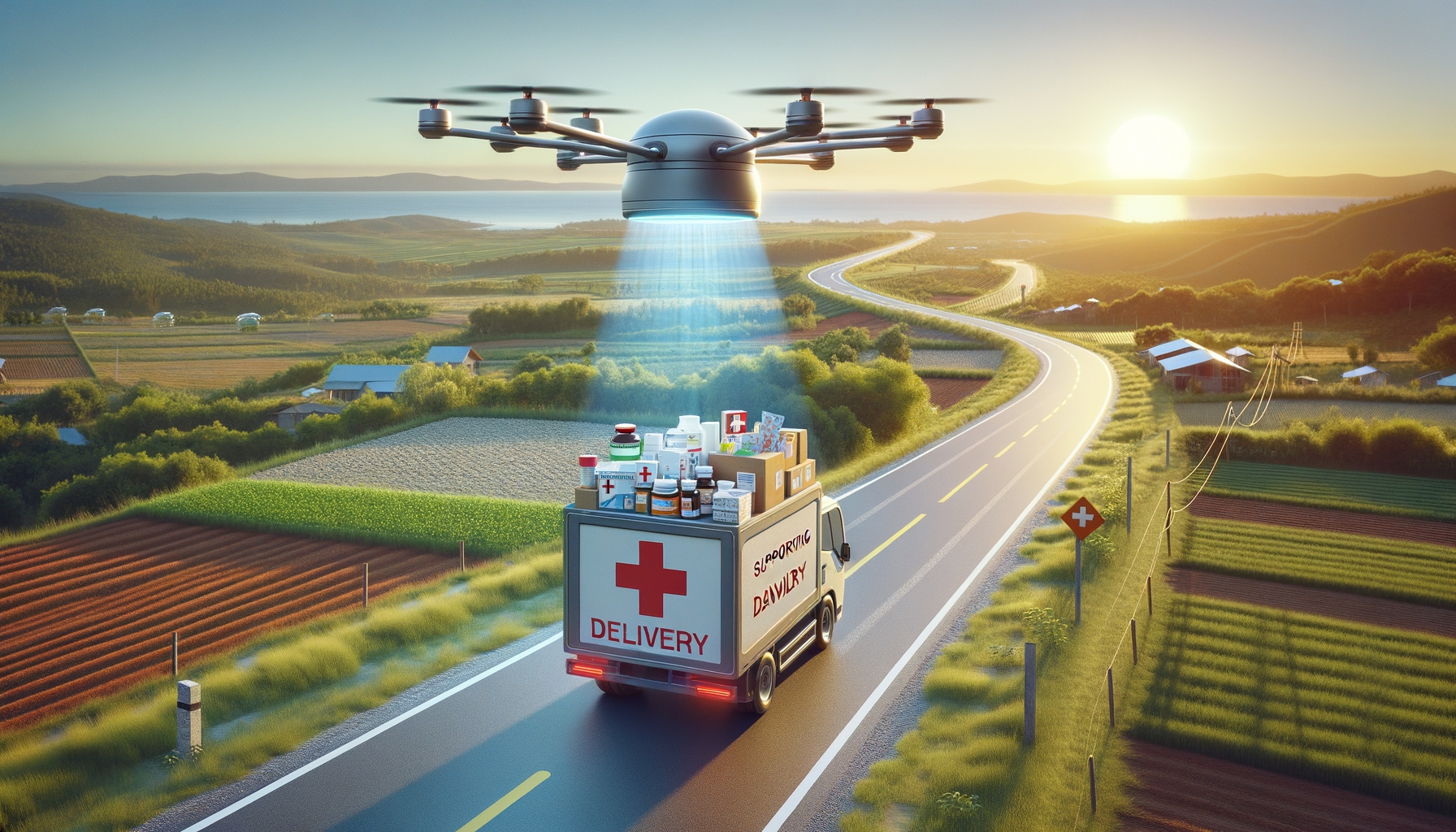Introduction: The Role of Delivery in Healthcare
In today’s fast-paced world, delivery services have become an integral part of our daily lives, extending their reach into the realm of healthcare. As healthcare systems strive to meet the growing demands of patients, delivery services offer a crucial solution by enhancing access to medications, medical supplies, and even healthcare professionals. This article delves into the various ways delivery supports daily healthcare access, examining its impact on patient care, convenience, and overall healthcare efficiency.
Enhancing Medication Access
Delivery services play a pivotal role in ensuring that patients have timely access to their medications, especially for those with chronic conditions or mobility issues. By partnering with pharmacies, delivery services can bring prescriptions directly to patients’ doorsteps, reducing the need for frequent trips to the pharmacy. This is particularly beneficial for elderly patients or those living in rural areas where access to healthcare facilities may be limited.
Moreover, the convenience of medication delivery can lead to improved adherence to treatment regimens. Patients are more likely to take their medications as prescribed when they do not have to worry about transportation or time constraints. This, in turn, can lead to better health outcomes and reduced hospital readmissions.
Delivery services also provide an opportunity for pharmacies to offer personalized services, such as medication synchronization and automatic refills, further enhancing patient satisfaction and loyalty.
Facilitating Access to Medical Supplies
Beyond medications, delivery services are instrumental in providing patients with necessary medical supplies. From diabetic testing kits to oxygen tanks, having these supplies delivered can be life-changing for patients who rely on them for daily health management. This service ensures that patients have uninterrupted access to the tools they need to maintain their health and well-being.
The availability of delivery services also supports healthcare providers by streamlining the supply chain. Clinics and hospitals can receive necessary supplies without delay, allowing them to focus on patient care rather than logistics. This efficiency is crucial in emergency situations where time is of the essence.
Furthermore, delivery services can offer tracking and inventory management, helping healthcare providers maintain adequate stock levels and avoid shortages.
Telemedicine and Home Healthcare
The rise of telemedicine has further highlighted the importance of delivery services in healthcare. With virtual consultations becoming more common, the need for delivering medical equipment and prescriptions to patients’ homes has increased. Delivery services bridge the gap between virtual care and physical needs, ensuring that patients receive comprehensive care without leaving their homes.
Additionally, home healthcare services benefit from delivery solutions by providing caregivers with the necessary supplies and medications to care for patients effectively. This not only improves patient outcomes but also enhances the efficiency of home healthcare providers.
By integrating delivery services with telemedicine, healthcare systems can offer a holistic approach to patient care, combining the convenience of virtual visits with the reliability of physical deliveries.
Addressing Challenges and Future Prospects
While delivery services offer significant benefits to healthcare access, they also face challenges that need to be addressed. Ensuring the safe and secure transport of medications and medical supplies is paramount. Delivery providers must adhere to strict protocols to maintain the integrity and confidentiality of healthcare products.
Moreover, the cost of delivery services can be a barrier for some patients and healthcare providers. Partnerships between healthcare systems and delivery companies can help mitigate these costs, making delivery services more accessible to a broader population.
Looking ahead, advancements in technology, such as drone deliveries and automated logistics, hold promise for further enhancing healthcare delivery services. These innovations could reduce delivery times and expand access to remote areas, ultimately improving healthcare access and outcomes for all.
Conclusion: The Future of Healthcare Delivery
As the healthcare landscape continues to evolve, delivery services will play an increasingly vital role in ensuring that patients have access to the care and resources they need. By enhancing medication access, facilitating medical supply delivery, and supporting telemedicine and home healthcare, delivery services contribute to a more efficient and patient-centered healthcare system. Embracing these solutions will be key to meeting the challenges of modern healthcare and improving patient outcomes.




Leave a Reply